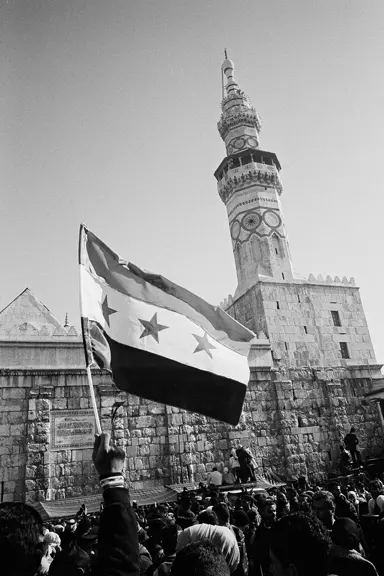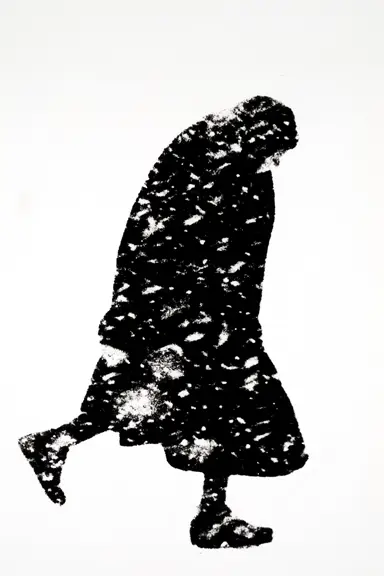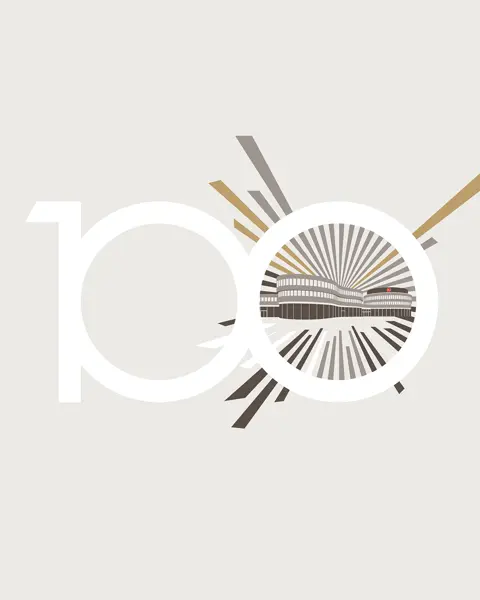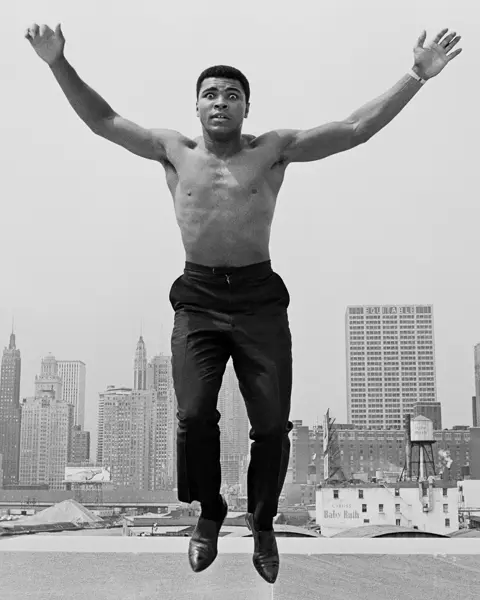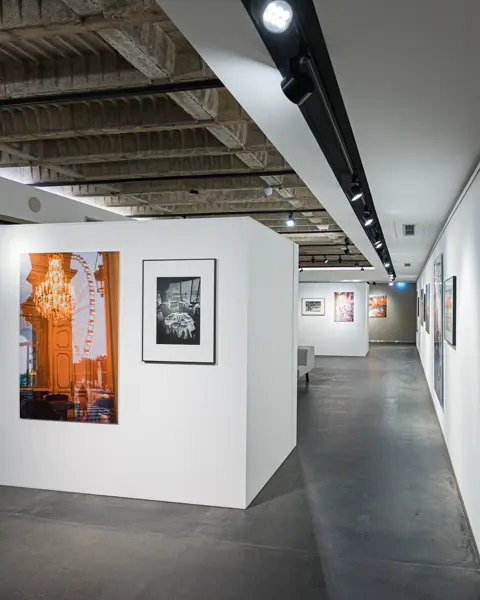From 25 September to 22 November 2025, the Leica Gallery will host an exhibition entitled ‘In Conversation: A Photographic Dialogue between Thomas Hoepker and Edouard Elias.’ It is one of twelve exhibitions produced as part of Leica's centenary celebrations, presented in 12 Leica galleries selected from among the 29 existing worldwide.
Every month since January 2025, an exhibition has been inaugurated in a Leica gallery, bringing together a contemporary photographer and a Leica Hall of Fame laureate, a leading figure in photography. The result is twelve exceptional duos whose works dialogue with each other, refer to each other and are a source of inspiration for all.
© Thomas Hoepker und Magnum Photos
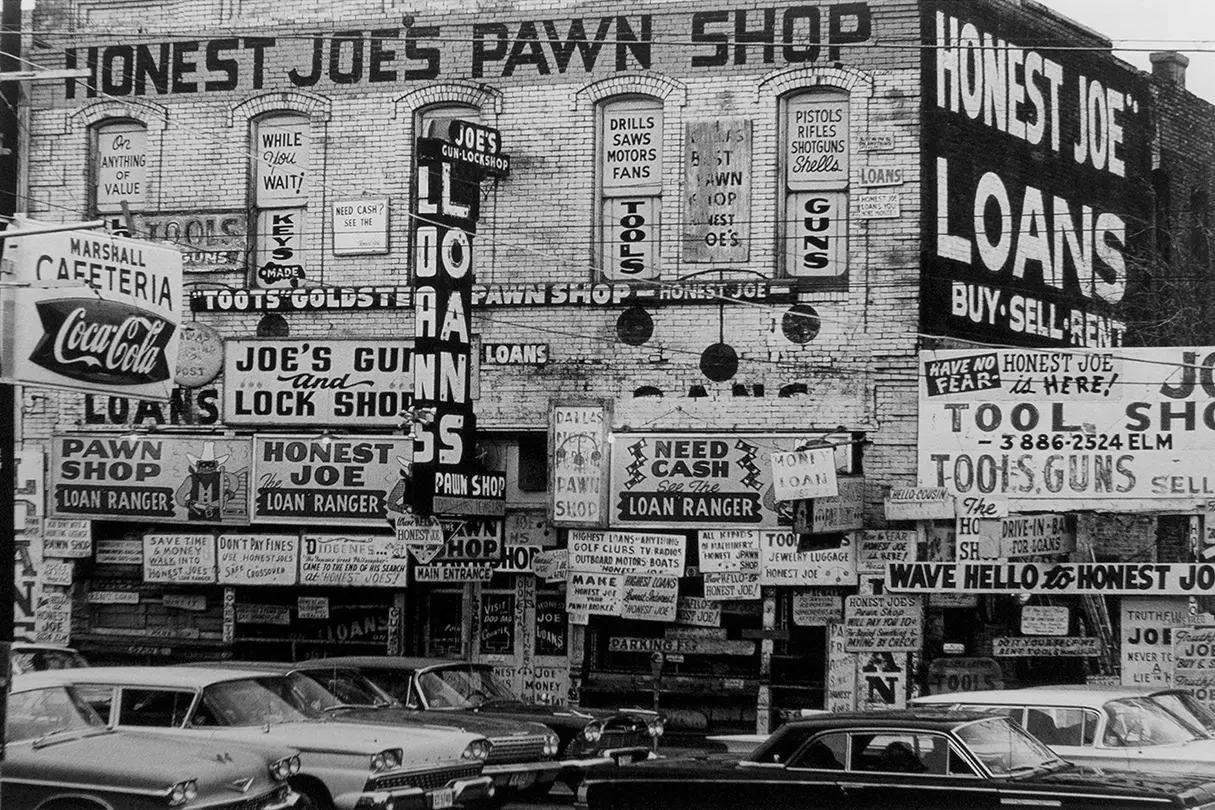
The Paris exhibition features Thomas Hoepker, winner of the Leica Hall of Fame in 2022, and Edouard Elias, a young photographer renowned for his documentary work on social and humanitarian crises.
A selection of images by Thomas Hoepker chosen by Edouard Elias respond to those of the photographer, taken from his archives but also from a reportage made in Syria in early 2025.
Like Thomas Hoepker, Edouard Elias champions humanistic photography and bears witness to a raw reality, far from sensationalism. Men, women and children, victims of disastrous geopolitical situations.
© Thomas Hoepker und Magnum Photos
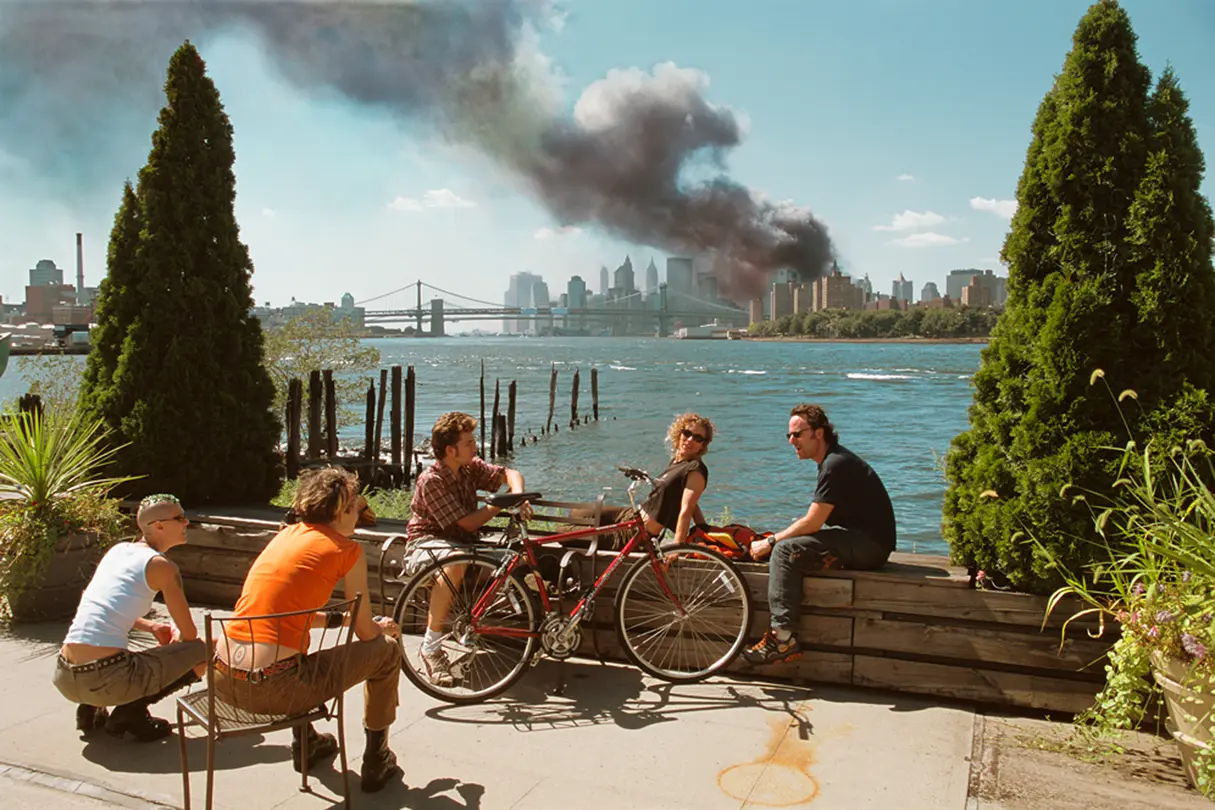
Thomas Hoepker and I have worked in very different contexts, but we share the same demand for clarity, distance and a kind of quiet attention to reality. I approached this dialogue with great respect, taking care not to imitate his work, but rather to suggest a sense of transmission.
Édouard Elias
Two themes dear to Edouard Elias predominate in this exhibition: man and the history of humanity's divisions. Edouard Elias left for Syria in 2012, marked by 11 months of captivity in Syrian prisons. He returned in January 2025 after the fall of Bashar Al-Assad's regime to understand the mysteries of a totalitarian regime. Like Hoepker, authenticity and visual testimony are constants in his work. There are no shocking images; on the contrary, the photographs capture the quiet dramas of everyday life. Like the image taken by Hoepker on 11 September 2001 in New York, or the one of children playing on the ruins of Berlin, which Edouard Elias particularly likes. He chose to work in film, like his elder, which requires a slower pace to tell the right story.
Edouard Elias brings us images of physical and psychological destruction, of ruins turned into statues, monstrous totems of a never-ending war, of victims regaining a semblance of life as they search for their missing loved ones.
© Elias Edouard
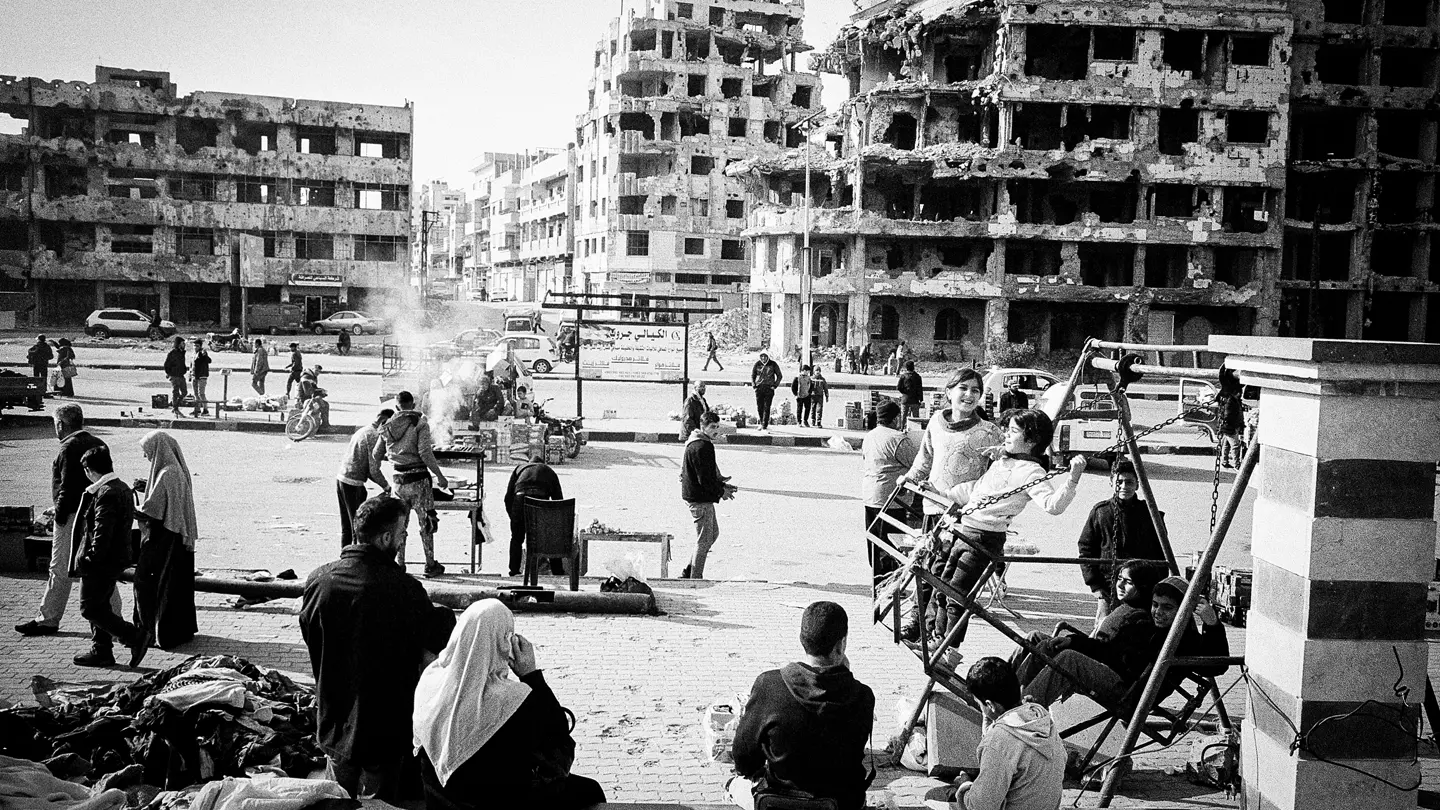
Photographing in black and white with analogue film requires a certain slowness, discipline and economy; it changes the way you see things. It also connects the work to a visual tradition of 20th-century documentary and war photography. Through this aesthetic, I wanted to evoke the recurrence of human catastrophes, totalitarianism, industrial devastation, the collapse of societies...
Édouard Elias
About the Artists
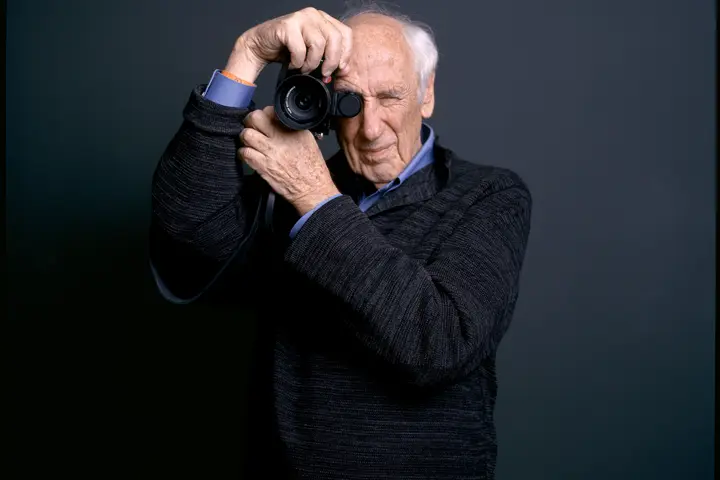
© Arne Wesenberg
About Thomas Hoepker
Thomas Hoepker was born in Munich in 1936 and initially studied archaeology and art history. As a photographer, he made his mark primarily in the magazines Geo and Stern. In 1989, he became a full member of the Magnum agency, serving as its president from 2003 to 2007. Hoepker lives in New York and Berlin.
Thomas Hoepker has always modestly considered himself a photographer on commission. As someone who is interested in nothing but reality, in the truth of the moment. At the age of 14, he was already experimenting with a glass plate camera. From 1959 onwards, he worked for magazines and almanacs, travelled for several months across the United States for Kristall magazine and produced his legendary reportage Champ über Muhammed Ali in 1966. From 1964 onwards, he was a regular contributor to Stern magazine, where he had a lasting influence on the visual language. In the late 1980s, he also held the position of art director there. With his precise composition, powerful images and keen visual sense, Hoepker left his mark on German photojournalism like few others. In 1976, he moved to New York and in 1989 became the first German member of the Magnum agency. His photos are committed, unvarnished and true to life, but never voyeuristic or hurtful. He does not create shocking images, but depicts silent everyday dramas. Unagitated, subtle and far from sensationalism, they have become icons of ‘committed photography’. Thomas Hoepker is thus one of the great representatives of committed humanist photojournalism today.
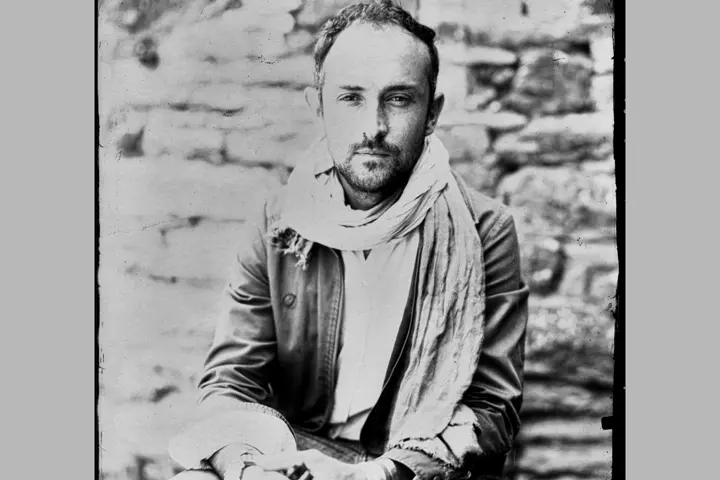
© Sebastien Bergeron
About Edouard Elias
Born in 1991 in Nîmes, Edouard Elias documents social and humanitarian crises around the world: wars, exoduses, repression, poverty.
As concerned with the stories he gathers from his subjects as with their perception by the public, he explores all the processes that allow him to create a connection that goes beyond simply informing about his stories.
His photography has evolved, initially focusing on news coverage during the Syrian conflict, where he followed the various rebel offensives on the front line against Bashar al-Assad's army. Captured by Islamic State during his fourth report, he was held hostage for 11 months. He then covered various crisis and combat zones for major national media outlets, immersing himself in refugee rescues in the Mediterranean, the flight of civilians around Lake Chad during the Boko Haram atrocities, the hospital of Dr Mukwege, winner of the 2018 Nobel Peace Prize in the Democratic Republic of Congo, closed educational centres for young offenders in France and, most recently, a project on two enemy trenches facing each other in the Donbass region of eastern Ukraine.
His approach then moves towards a slower methodology, where intimacy with his subject creates an immersive photographic practice, as close as possible to the stories so as not to merely bear witness to a context but to emotions.
Leica Gallery I 26 rue Boissy d'Anglas I 75008 Paris
Open Monday to Saturday from 10 a.m. to 7 p.m.
Vernissage October 16th, 2025 – 6.30 pm
Leica Gallery Paris
26 rue Boissy d'Anglas
75008 PARIS
France
10.00 am to 7.00 pm
